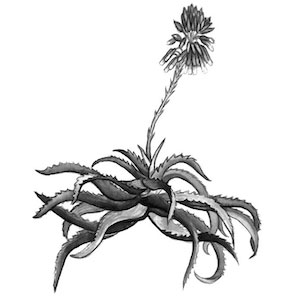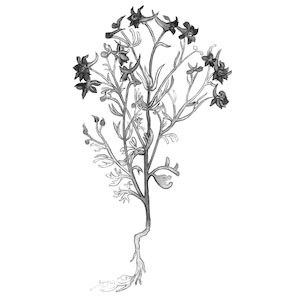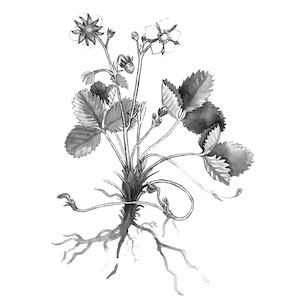Ashkenazi Herbalism: Rediscovering the Herbal Traditions of Eastern European Jews
SKU 978-1623175443
Original price
$24.95
-
Original price
$24.95
Original price
$24.95
$24.95
-
$24.95
Current price
$24.95
Until now, the herbal traditions of the Ashkenazi people have remained unexplored and shrouded in mystery. Ashkenazi Herbalism rediscovers the forgotten legacy of the Jewish medicinal plant healers who thrived in Eastern Europe's Pale of Settlement, from their beginnings in the Middle Ages through the modern era.
Including the first materia medica of 26 plants and herbs essential to Ashkenazi folk medicine, Ashkenazi Herbalism sheds light on the preparations, medicinal profiles, and applications of a rich but previously unknown herbal tradition--one hidden by language barriers, obscured by cultural misunderstandings, and nearly lost to history. Written for new and established practitioners, it offers illustrations, provides information on comparative medicinal practices, and illuminates the important historical and cultural contexts that gave rise to Eastern European Jewish herbalism.
Part I introduces a brief history of the Ashkenazim and provides an overview of traditional medicine among Eastern European Jews. Part II offers a comparative overview of healing customs among Jews of the Pale of Settlement, their many native plants, and the remedies applied by local healers to treat a range of illnesses. This materia medica names each plant in Yiddish, English, Latin, and other relevant languages, and the book also details a brief history of medicine; the roles of the ba'alei shem, feldshers, opshprekherins, midwives, and brewers; and the remedy books used by Jewish healers.
Including the first materia medica of 26 plants and herbs essential to Ashkenazi folk medicine, Ashkenazi Herbalism sheds light on the preparations, medicinal profiles, and applications of a rich but previously unknown herbal tradition--one hidden by language barriers, obscured by cultural misunderstandings, and nearly lost to history. Written for new and established practitioners, it offers illustrations, provides information on comparative medicinal practices, and illuminates the important historical and cultural contexts that gave rise to Eastern European Jewish herbalism.
Part I introduces a brief history of the Ashkenazim and provides an overview of traditional medicine among Eastern European Jews. Part II offers a comparative overview of healing customs among Jews of the Pale of Settlement, their many native plants, and the remedies applied by local healers to treat a range of illnesses. This materia medica names each plant in Yiddish, English, Latin, and other relevant languages, and the book also details a brief history of medicine; the roles of the ba'alei shem, feldshers, opshprekherins, midwives, and brewers; and the remedy books used by Jewish healers.
DEATRA COHEN is a former reference librarian, is a clinical herbalist who trained with the Berkeley (formerly Ohlone) Herbal Center, belongs to a Western Clinical Herbal collective, and is a Master Gardener at the University of California. In her research, Cohen became frustrated with the lack of practical information available to Jews of Ashkenazi descent, and related to Eastern European traditions in general. Ashkenazi Herbalism was written to reconcile this lack, and the first work in any language to document the herbal practices of Ashkenazi Jews.
ADAM SIEGEL is a research librarian at University of California, Davis, and a historian of Central and Eastern Europe, studying issues around cultural contact and plant knowledge in the region. Siegel is a literary translator who has translated works from Russian, Czech, German, Croatian, Serbian, French, Italian, Swedish, and Norwegian, and was awarded a National Endowment for the Arts Literary Translation Fellowship in 2014. Siegel conducted the non-English research for this work, reviewing literature and scholarship in Yiddish, Ukrainian, Russian, German, Polish, and Hebrew.
ADAM SIEGEL is a research librarian at University of California, Davis, and a historian of Central and Eastern Europe, studying issues around cultural contact and plant knowledge in the region. Siegel is a literary translator who has translated works from Russian, Czech, German, Croatian, Serbian, French, Italian, Swedish, and Norwegian, and was awarded a National Endowment for the Arts Literary Translation Fellowship in 2014. Siegel conducted the non-English research for this work, reviewing literature and scholarship in Yiddish, Ukrainian, Russian, German, Polish, and Hebrew.







